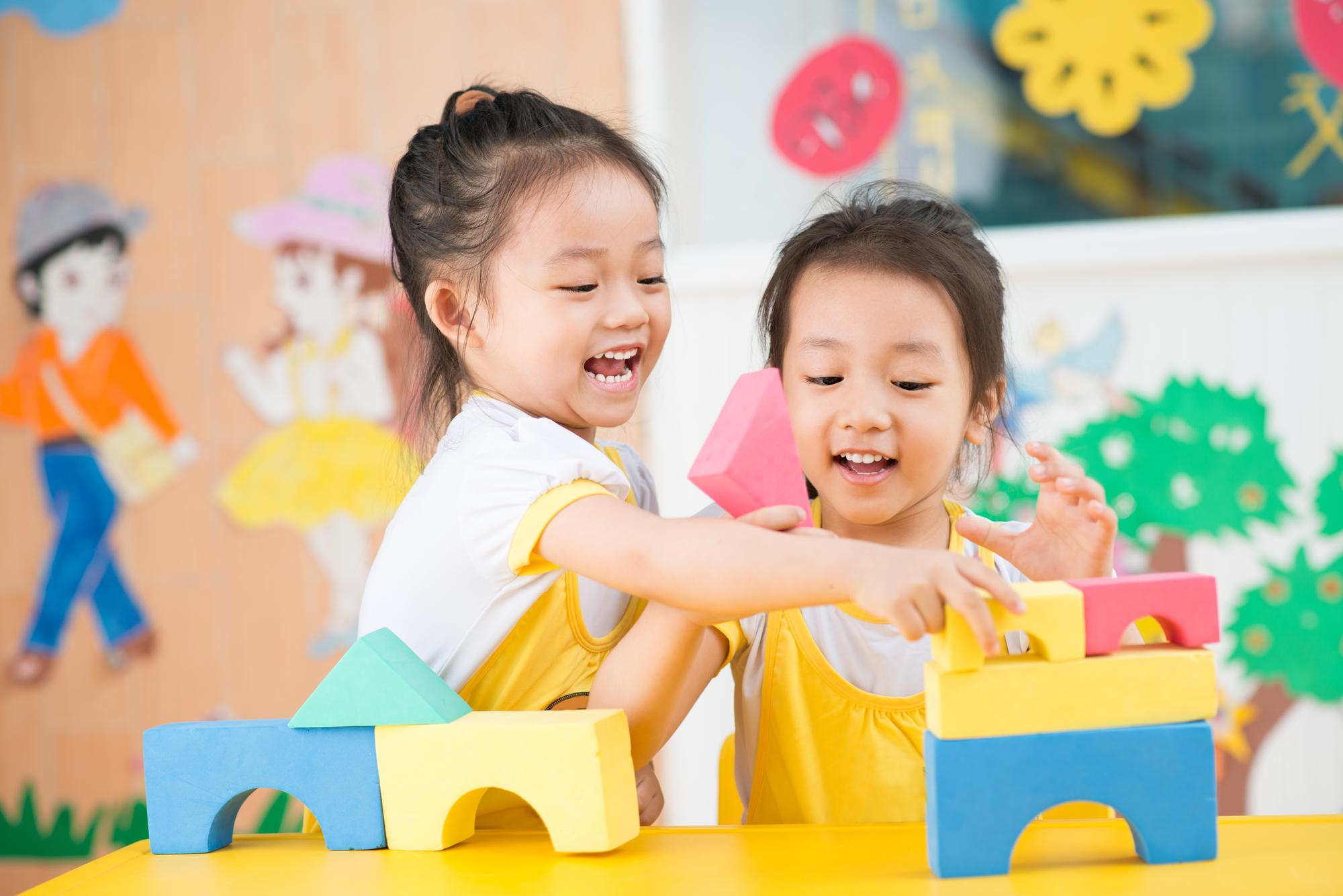When should you start preparing your toddler for preschool? This is one question that could send the hearts of new parents racing. After all, who wants to let go of their adorable little babies?!
Some parents send their kids to school as early as two years old; others much later.
“Children are not required to attend school until the age of five,” says Tina Zamora, directress of Nest School for Whole Child Development, a progressive school offering preschool and elementary education. Under the K to 12 program, she says, kinder is at age five.
“However, there are good toddler programs that start your child off as early as one year old! This is good for socialization and gross motor development,” says Teacher Tina, who also publishes the blog, www.teachertina.net, which advocates progressive education.
“For two to four year olds, preschool is good for socio-emotional skills specially since this is the age that they play with other kids or they have a sibling on the way. Some pre-reading skills are also developed. What’s important is that since this level is not ‘required,’ preschool should be a fun and enjoyable experience for your child where he’ll be able to meet other kids, be comfortable in routines, and develop in all domains, not just cognitive,” says Zamora.
“Any child can start preschool! However, some schools may require being toilet-trained or may want to see if there are no special needs that warrant a visit to a developmental pediatrician like speech delay, neuro developmental delay, or attention issues. Otherwise, he’s good to go!”
Yes, there are no hard and fast rules about what age to start bundling your child off to preschool. However, there are a few things to consider to gauge readiness for introducing him to a school routine. Remember, your child may find a program’s daily structured routine with other kids different from the environment at home.
1. Independence
How much assistance does your child need every day? Preschools usually require a bit of autonomy from their students, especially with regards to hygiene and personal care. Your child needs to be or at least close to being potty-trained. Eating and drinking on his own, cleaning and dressing himself, putting away things, and sleeping on his own are also some skills that show readiness.
Your child’s ability to focus and occupy himself for periods of time is another indication. There will be individual tasks and activities that will require his concentration to finish.
Separation anxiety can also become an issue at drop-off time, especially if your child is not used to being away from you.
If your child still does not exhibit these traits, you can help by letting him do things on his own to develop confidence and self-reliance. Observe what engrosses him and allow him to play by himself. Expose him to interesting and age-appropriate activities for stretches of time as you do your chores. The trick is to help your child achieve greater levels of independence a little at a time.
To alleviate separation and stranger issues, play dates with other kids and spending time with other family members can help. Children who have more than one caregiver or are used to being with other people while you are away often have an easier time adjusting to new people and surroundings.
2. Willingness to participate
Preschool activities usually include group singing, story time or “circle time” where everyone needs to sit still, listen, and learn together. Those who are at the naturally active, exploratory stage of development may find it difficult to do this and may not yet be ready to play with other kids.
Introducing your child slowly to group activities can help develop his readiness to interact with other children. Group play dates with cousins or a friend’s kids can help, as well as enrolling in a play school.
3. Readiness for routine
Child stress is significantly reduced whenever kids feel secure and assured. Preschool follows a regular schedule where kids know what to expect so they feel comfortable and in control. If your child is not used to this, begin a schedule with the same things happening at the same time each day. When your child begins to follow rituals you’ve set, you’re on the way!
4. Stamina for school hours
Preschool programs can run from a few short hours to a full day. This is to accommodate those who are ready and those who are still adjusting to the new routines, people, and environment. The activities are set to keep the kids occupied so your child will need the strength and stamina to last until the scheduled rest time or when class ends. Consider carefully if and when your child still gets easily tired, cranky, and often needs a nap. Try to ease your child into a regular sleeping pattern with a good nighttime sleep and a nap after lunch. A short preschool program would be a good place to start so your child won’t get shell-shocked with a longer, heavier program.
5. Your reasons
Lastly, think about why you want your child to start preschool. Is it because you feel that your child is going to thrive in the preschool environment or are you looking for day care services? Are you worried your child could be “left behind” academically?
Remember that a loving, nurturing home, family, and caregivers will best prepare your child for the future. There are also options to take if your child isn’t ready as forcing school attendance can harm your child’s development and well-being.
However, if your main reasons are that you see an eagerness to learn and explore new things in your child and there is a readiness to interact with other children, then maybe it really is time to start school.


Leave a Reply